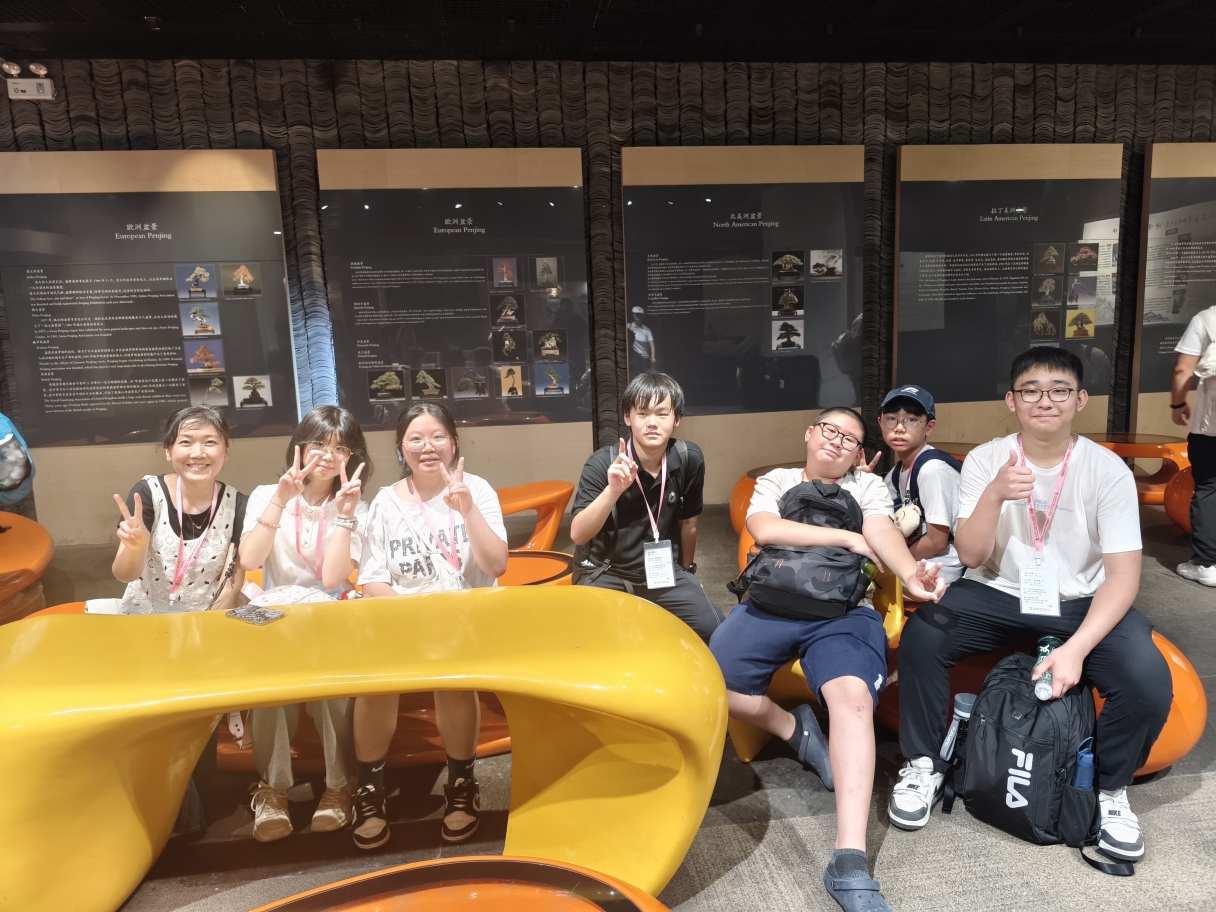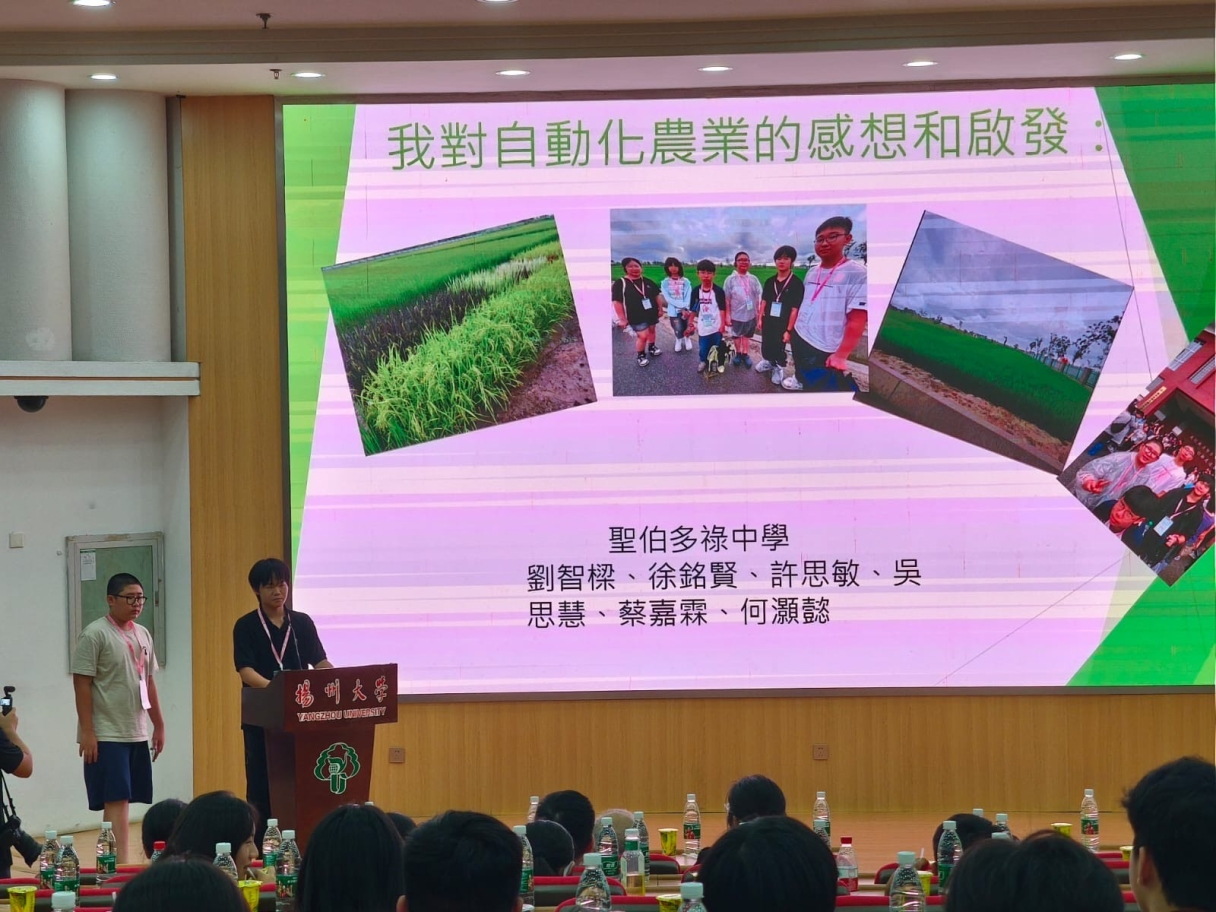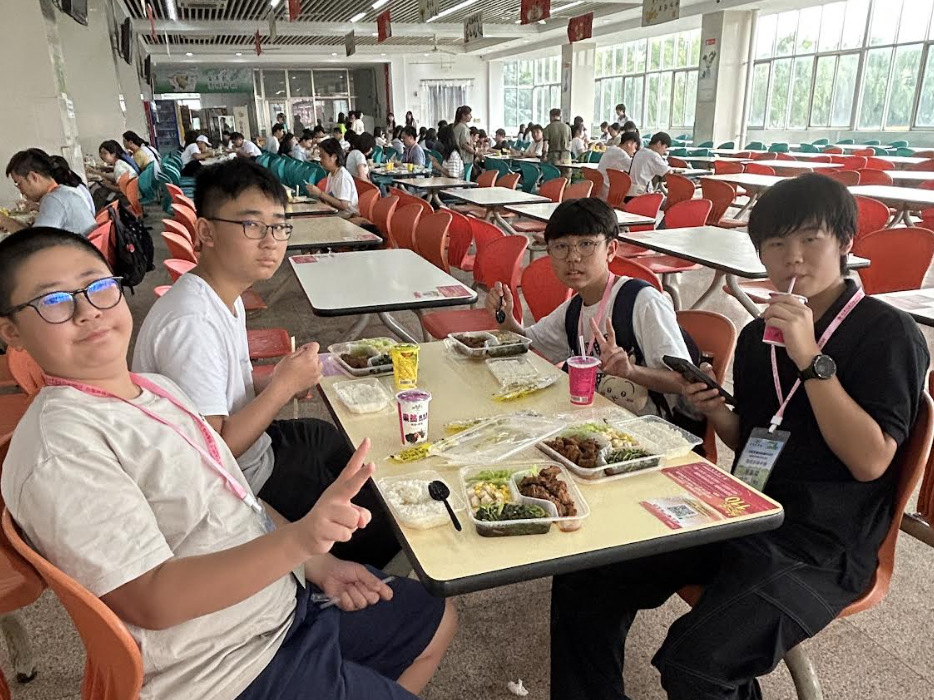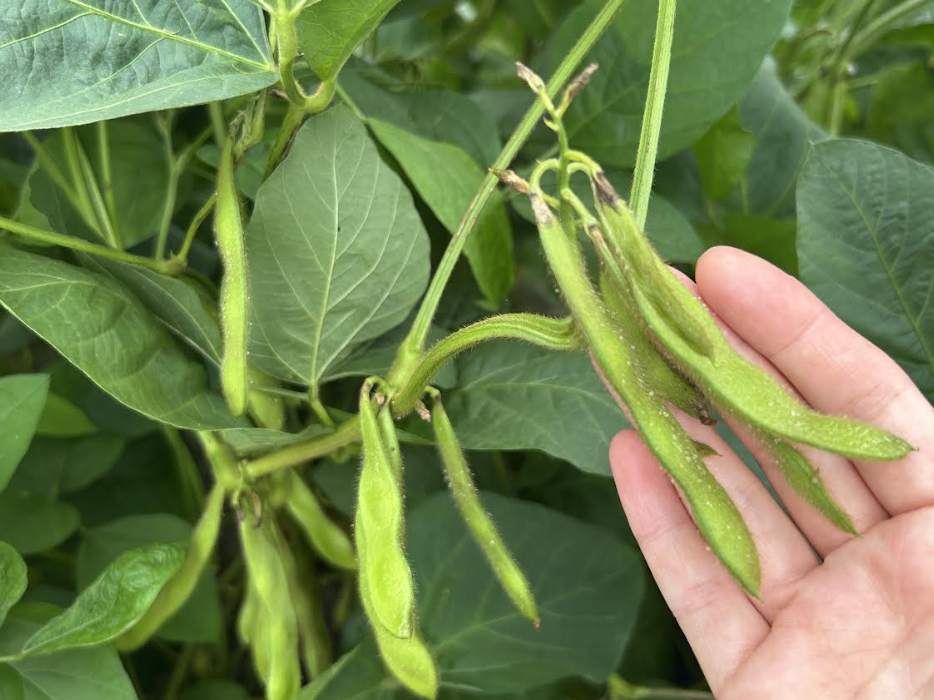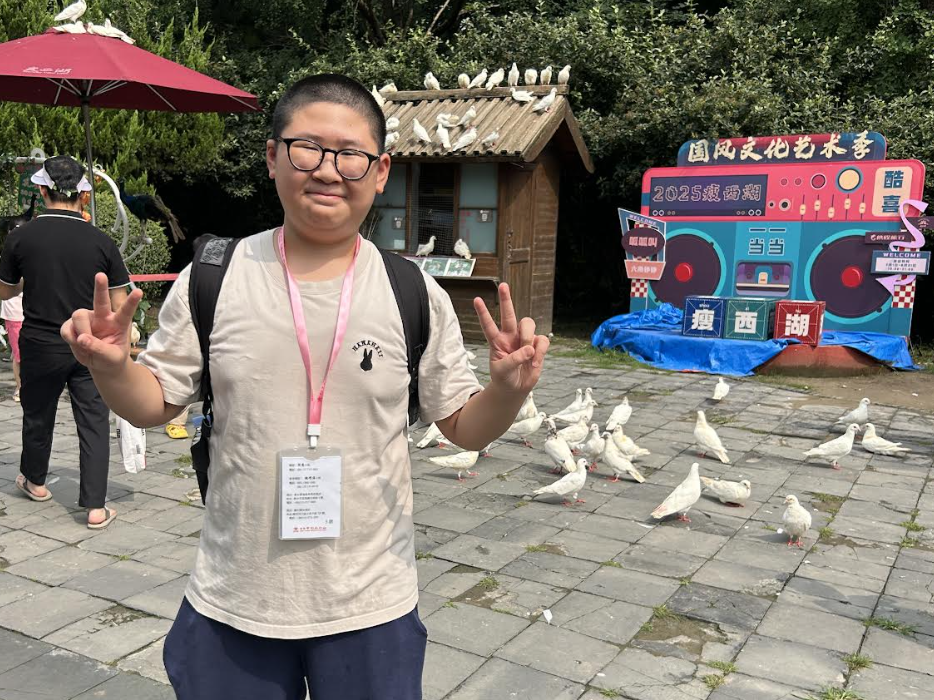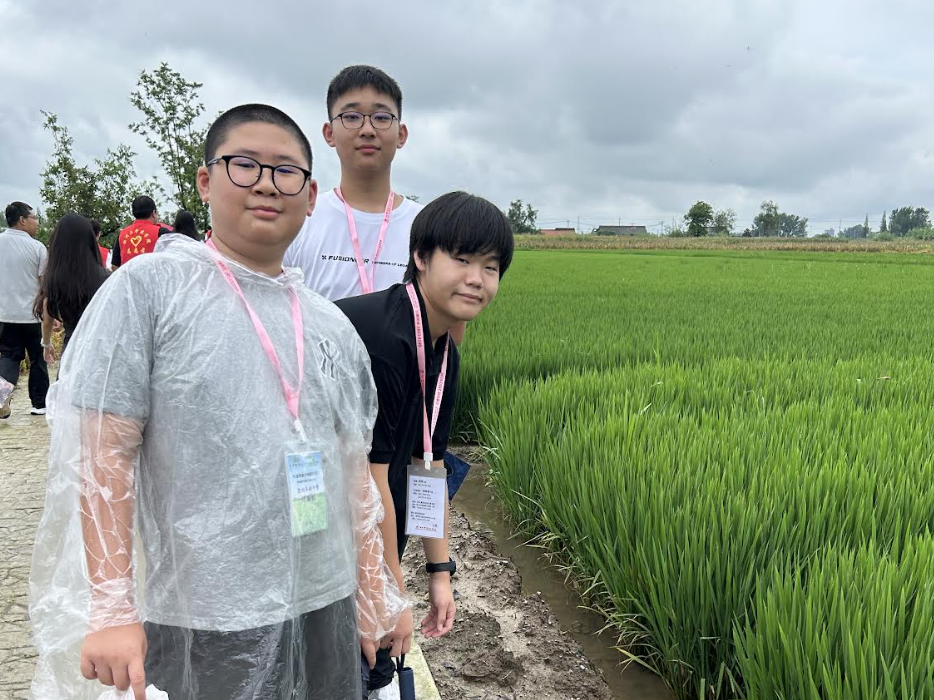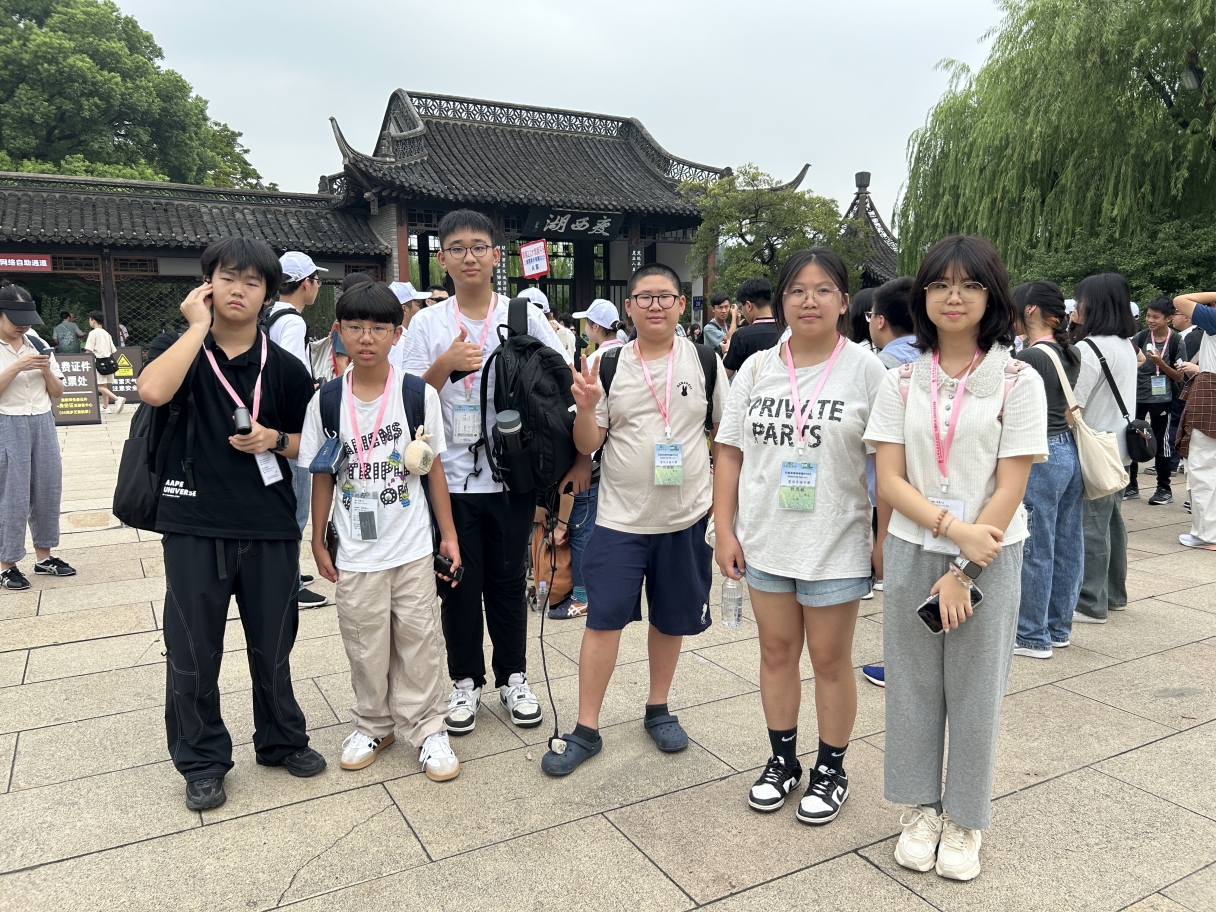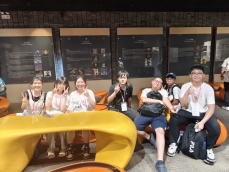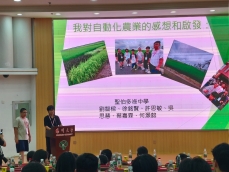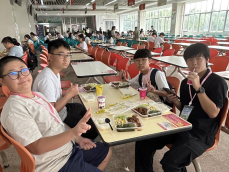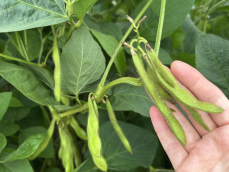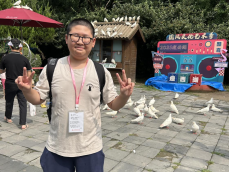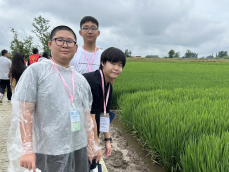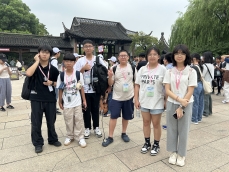This year, six Form 1 and Form 2 students from our school joined the 2025 Jiangsu Agricultural Study Tour organized by the National Key Laboratory of Agricultural Biotechnology at The Chinese University of Hong Kong and the Education 2.1 platform, led by Professor Lam Hon-ming.
This was a large-scale study tour with over 160 participants, including students from 16 secondary schools and more than 130 secondary students. We are deeply grateful to the faculty and students of CUHK and Yangzhou University for their full support throughout the journey.
Our first stop was Yellow Sea Forest National Park. This forest was created in the 1960s when educated youths in the “Up to the Mountains and Down to the Countryside” movement planted trees by hand on tidal flats. Today, students enjoy its beautiful scenery—it truly exemplifies “the trees our predecessors planted, now providing shade for us”. Inside, an exhibition hall explains the importance of carbon reduction and features numerous interactive games for students to experience.
On the second day, the weather was extremely harsh, with strong winds and torrential rain. Although students wore raincoats and shoe covers, they were soaked through and covered in mud—an unforgettable experience. We visited the Tiaozi Mudflat to witness the dramatic changes over time. Twelve years ago, this land was still under seawater; to improve the mudflat ecosystem, teams from CUHK and Yangzhou University planted ginkgo trees and soybeans. What had been a lush green soybean field in mid-July was reduced to bare stalks after heavy rain, flooding, and incursions by elk and wild hares. In the face of such setbacks, Professor Lam reminded us that farmers everywhere encounter unexpected difficulties; if you don’t want to give up, you must find a way to solve the problem. “Adversity strengthens resolve and unbowed ambition soars”.
On the third day, we traveled to Gaoyou to visit the smart cattle farm developed by Yangzhou University. Many agricultural tasks that were once time-consuming and prone to error can now be handled by machines, reducing labor demands and boosting productivity. We also tasted the yogurt produced by Yangzhou University—it was exceptionally delicious. Through technological and scientific advances, agriculture is no longer synonymous with back-breaking manual labor.
On the fourth day, we went to Slender West Lake to learn about landscape and bonsai art, guided by professors from Yangzhou University’s College of Horticulture and descendants of the founders of the Yang School of bonsai. The weather was intensely hot, and students’ faces were flushed, yet their eagerness to learn never waned—a truly commendable spirit. Bonsai is not just an art form; it also carries the legacy of history and cultural heritage.
Finally, under the guidance of students from Yangzhou University and New Asia College, our students delivered brief reports on their learning outcomes. Although time was limited, they prepared diligently and presented confidently before nearly two hundred attendees—tour participants plus Yangzhou University faculty and students—a testament to their courage.
During the tour, Professor Lam shared many thought-provoking insights, the most resonant of which was: “By embracing the ordinary, you ultimately achieve the extraordinary”.
The study tour isn’t over yet. On September 27, our students will return to CUHK in Hong Kong for a joint-school presentation and exhibition. We look forward to their using this time for deep reflection.
This tour was full of twists and turns: first enduring strong winds and heavy rain, then facing scorching heat, and finally, on the last day, due to Typhoon Yangliu, our departure shifted from the afternoon to the early morning—delayed by a full 12 hours—and we didn’t return to Hong Kong until after 3 a.m. Not a single student complained, and we teachers are truly grateful to have journeyed alongside you all.


